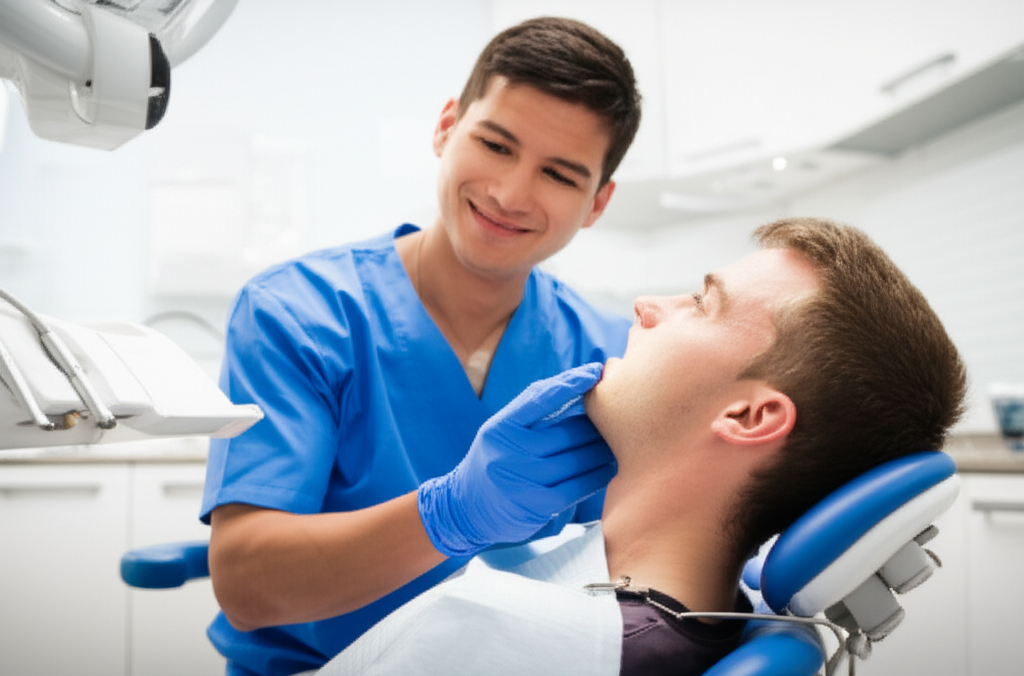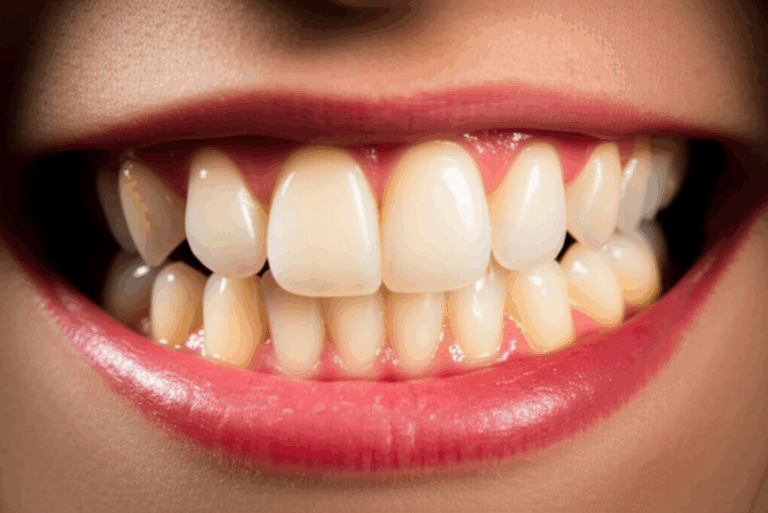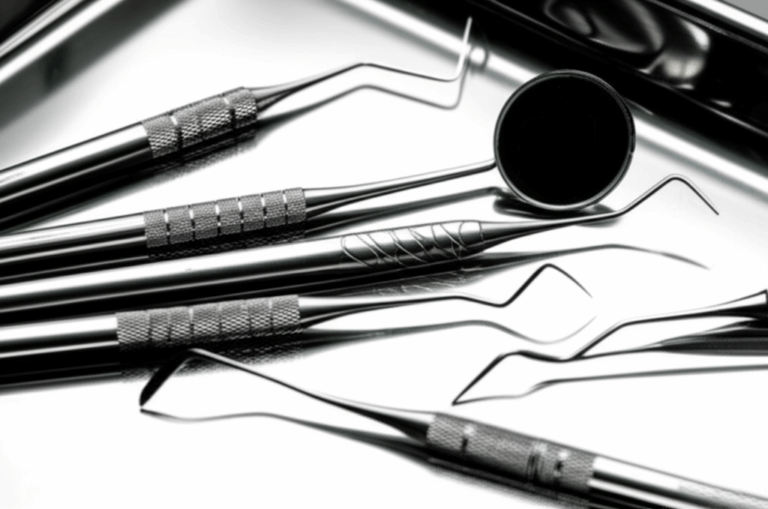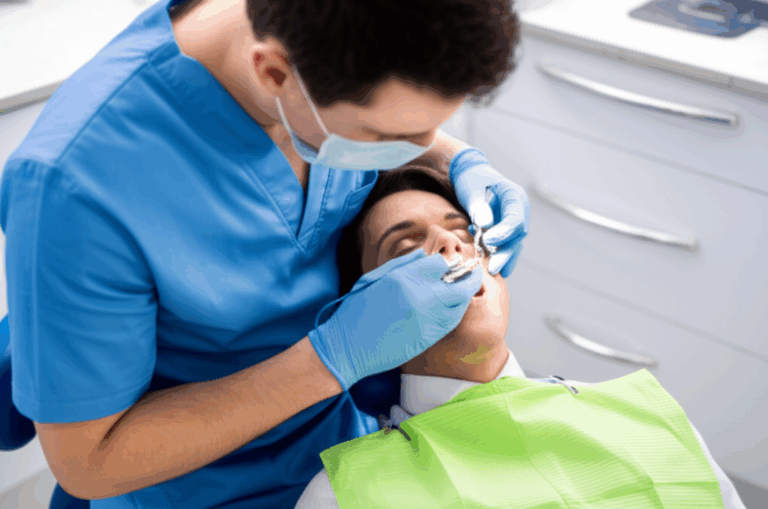
Can a Dentist Help with Jaw Pain? My Honest, Hands-On Guide to Diagnosis & Treatment
Table of Contents
- TMJ Disorders: The Jaw’s Notorious Trouble Spot
- Bruxism: When Teeth Grinding Becomes a Pain
- Malocclusion: How Your Bite Plays a Role
- Dental Problems That Can Cause Jaw Pain
- Other Sneaky Causes
- The Exam: What to Expect in the Chair
- Patient History: Why Your Story Matters
- Imaging and Tests: When X-rays and More Are Needed
- Sorting Out Similar Problems
- Non-Invasive and Conservative Treatments
- Night Guards & Splints
- Bite Adjustment Fixes
- Orthodontics for the Jaw
- Medication: What Really Works
- Physical Therapy and Referrals
- Advanced Solutions for Stubborn Pain
- Botox and Beyond
- When You Need a Specialist
- Easy Lifestyle Tweaks
- At-Home Relief Strategies
Introduction: My Personal Experience with Jaw Pain and Dentists
Jaw pain can sneak into your life and just hang around, like a guest who never leaves. I know because I dealt with it myself. Years back, I woke up with a dull pain that ran from my temple down to my jaw, always worse after hard days. At first, I ignored it—thought it was just stress, or maybe I chewed too much gum. But as the pain kept coming—with a click here, a pop there, and a few headaches—I finally called my dentist.
That call changed everything. My dentist didn’t just look at my teeth. She listened to my story, checked how my jaw moved, and asked about my daily stress. She found I was grinding my teeth at night, explained it all, and walked me through simple things that helped me feel better. Her care was about more than teeth—it was about my whole jaw and how I was feeling.
So, if you’re thinking, “Can a dentist help with jaw pain?” I’ll just say it—yes, they really can. Let me take you through what I learned, step by step.
Why Jaw Pain Happens: The Main Culprits Dentists See
There’s nothing worse than jaw pain that just won’t go away. But before you can fix it, you need to know why it’s happening. Let me explain the most common reasons—these sent me or my friends straight to the dentist’s chair.
TMJ Disorders: The Jaw’s Notorious Trouble Spot
Have you heard of the temporomandibular joint (TMJ)? It’s the tiny hinge that connects your jaw to your skull, right in front of your ears. When this joint or its muscles get sore or out of place, dentists call it a temporomandibular disorder (TMD). The joint is small, but the pain can be huge.
What It Feels Like: You might hear a pop or click when you chew or yawn. There could be pain around your ear, trouble opening your mouth wide, or a dull sore spot in your cheek or temple.
Why It Happens: Dentists see TMD from stress, bad habits like teeth clenching or grinding, jaw injuries, arthritis, or a bite that’s off. For me, it was a mix of job stress and my bite not lining up right.
Bruxism: When Teeth Grinding Becomes a Pain
If you ever wake up with a sore jaw or sore teeth, you might be grinding (bruxing) or clenching them in your sleep. It’s your body’s way of dealing with stress, but your jaw ends up paying for it. My dentist caught it because my teeth had flat spots—even before I admitted to myself how stressed I really was.
Signs You’re a Grinder or Clencher:
- Sore jaw muscles
- Worn or cracked teeth
- Clicky or popping jaw joint
- Morning headaches
Bruxism is more common than you’d think. Some studies say almost 1 out of 3 people do it at night!
Malocclusion: How Your Bite Plays a Role
Ever feel like your teeth don’t meet quite right? That’s called malocclusion—dentist talk for a bad bite. If your upper and lower teeth don’t fit together, it can overwork your jaw joints and muscles, causing pain after a while. My dentist saw this by asking me to bite down and using some colored paper to check where my teeth hit first.
Dental Problems That Can Cause Jaw Pain
Sometimes, your pain isn’t from the jaw at all—it’s a tooth acting up. Think cavities, a tooth with an infection, wisdom teeth coming in, or even a crown or filling that doesn’t fit right. These can all make your jaw and face hurt.
I’ll never forget when my “jaw pain” turned out to be a molar with a big cavity. Once my dentist fixed it, the jaw ache was gone.
Other Sneaky Causes
Other things your dentist might check:
- Stress and tension: Some of us hold stress in our jaws—I sure do.
- Arthritis: This can hurt the jaw just like it does your other joints.
- Bad posture: How you sit or stand might add to jaw pain.
How a Dentist Diagnoses Jaw Pain: Step by Step
If you’re like me, you might get nervous about going to the dentist. But when your jaw hurts, a dentist is the best person to figure things out. Here’s what my dentist did, and what most will do.
The Exam: What to Expect in the Chair
First, you’ll get a careful checkup. My dentist asked me to open and close my mouth while she watched my jaw move. She gently pressed on the jaw muscles and joints, checked for sore spots, popping, or if I couldn’t open wide. She also looked at how my teeth fit together.
Patient History: Why Your Story Matters
Next, she asked about my day-to-day life. Was I stressed? Did I chew gum? Did it hurt more in the morning or after food? Honest answers helped my dentist spot signs of grinding, TMD, and more. Turns out, your story tells a lot!
Imaging and Tests: When X-rays and More Are Needed
Sometimes, looking isn’t enough. My dentist started with a plain dental x-ray to see if a tooth or bone was the problem. For trickier cases, she might order an MRI or CT scan to see the jaw joint or soft tissue.
Sorting Out Similar Problems
Jaw pain isn’t always from the jaw. Sometimes, sinus trouble, nerve pain (like trigeminal neuralgia), or ear problems feel just like TMD. A good dentist makes sure you’re not being sent on a wild goose chase.
Treatment Options from the Dentist’s Chair
Jaw pain isn’t the same for everyone. From my own story and those of people I know, I can say that good dentists take things slow and steady. Here’s what I went through and what you might have offered.
Non-Invasive and Simple Treatments
Night Guards & Splints
This was a big help for me. My dentist made me a custom night guard—a soft, slim tray I wore at bedtime. It acted like a cushion and helped my jaw muscles relax. Within weeks, my jaw felt easier, and my teeth didn’t hurt as much.
These dental tools:
- Protect teeth from grinding and clenching
- Help adjust the jaw so muscles don’t work too hard
Research says custom night guards and splints help most—about 70–90% of people feel better.
Bite Adjustment Fixes
If your bite is the main issue, your dentist might carefully reshape some teeth (this is called occlusal adjustment) or suggest a new crown, bridge, or even work from a crown and bridge lab. Sometimes a small change to a filling or crown can make a big difference.
Orthodontics for the Jaw
If your problem is stubborn and comes from crooked teeth or a bad bite, you may need orthodontic treatment—like braces or clear aligners. Don’t worry; there are modern, less-visible choices now, often planned by digital experts at a digital dental lab.
Medicine: What Really Helps
Short-term, you might need help with the pain and swelling. My dentist told me to try ibuprofen or another over-the-counter pain reliever, and for tough days, gave me a light muscle relaxer. A little medicine, used briefly, got me past the worst.
Physical Therapy and Referrals
Physical therapy isn’t just for legs or backs. Simple jaw stretches and massages, sometimes started by the dentist and continued with a therapist, made my jaw move better and hurt less. My dentist even sent me for a few sessions when my pain just wouldn’t stop.
Advanced Options for Tough Pain
Botox and More
A few people (like someone in my family) try things like Botox shots. These go into tight jaw muscles and can stop clenching and pain, often for months. My dentist offered this idea after the usual steps didn’t work.
When You Need a Specialist
Sometimes, jaw pain is a sign of something bigger. That’s when my dentist talked about a referral—to an oral surgeon for surgery, or to a pain specialist for problem jaw pain. It’s good to know there are more experts if you need them.
Self-Care & Everyday Habits: What Helped Me the Most
Dentists do a lot, but the stuff you do at home makes a big difference. My dentist gave me easy tips that, honestly, were more helpful than I expected.
Easy Lifestyle Tweaks
- Eat soft foods while your jaw gets better—yogurt, eggs, bananas, smoothies, soup.
- Don’t open too wide (I stopped biting big apples in one go).
- Skip gum and tough, chewy things for now.
At-Home Relief Strategies
- Use a warm cloth or a cold pack for 10–15 minutes on your jaw. I switched between warm and cold, depending on what felt nice.
- Try jaw stretches (your dentist or therapist can show safe ones).
- Handle stress: Take deep breaths, try meditation, or just take breaks if you’re feeling tense.
Really—little things like these, plus my night guard, got me through the worst.
When You Should See a Dentist About Your Jaw
Here’s the question I wish I asked myself sooner: “When should I call my dentist?” From what I’ve learned, don’t wait if you have:
- Jaw pain or tightness that won’t quit
- Clicking, popping, or grinding sounds with pain
- Trouble opening/closing your mouth
- Headaches or earaches that seem tied to chewing or jaw movements
- Any worry about your bite or teeth fitting oddly
The sooner you get checked, the easier it is to get better. Trust me, you’re not ever “bothering” your dentist—they see jaw pain all the time, and may work with places like a night guard dental lab to get you a custom appliance or fix something else if needed.
The Data: Real-World Stats and Clinical Outcomes
Let’s look at the numbers—because facts help when you’re hurting.
| What the Data Says | What It Means in Real Life |
|---|---|
| 10–15% of adults have TMD symptoms | About 1 in 10 will have jaw pain at some point—most go to a dentist first. |
| Women (ages 20–40) get TMD most | Jaw pain is common, and you’re not alone! |
| Bruxism affects up to 31% of people | Grinding & clenching sneak up on almost anyone—especially in stressful times. |
| Custom oral appliances bring 50–70% improvement | Night guards and splints help most people! |
| 80%+ of jaw pain cases get better with simple care | Most people get better with easy, non-surgery steps. Surgery is uncommon. |
| Stress makes jaw pain worse | Handling your mind is as important as using medicine or an appliance. |
| Dentists are very good at figuring out jaw pain | Don’t just hope jaw pain goes away—see a dentist! |
These aren’t just statistics—this is what dentists see every day.
Conclusion: Take It from Me—Don’t Wait to Get Help
If you’re reading this, you probably have jaw pain, or you’re unsure what to do next. I’ve had that pain, tried to tough it out, and worried about what it meant.
Don’t wait like I did. Dentists are ready to help with all sorts of jaw pain—whether it’s a jaw joint issue, teeth grinding, bad bite, or something else. They can spot the trouble, set up a plan, and team up with others (including dental labs or orthodontic experts) so you can get back to normal.
You don’t have to push through the pain. If your jaw is hurting, don’t overthink it—call your dentist, tell them what’s going on, and let them take care of you. For me, it was the best thing I could have done. I’d make the same call again.








